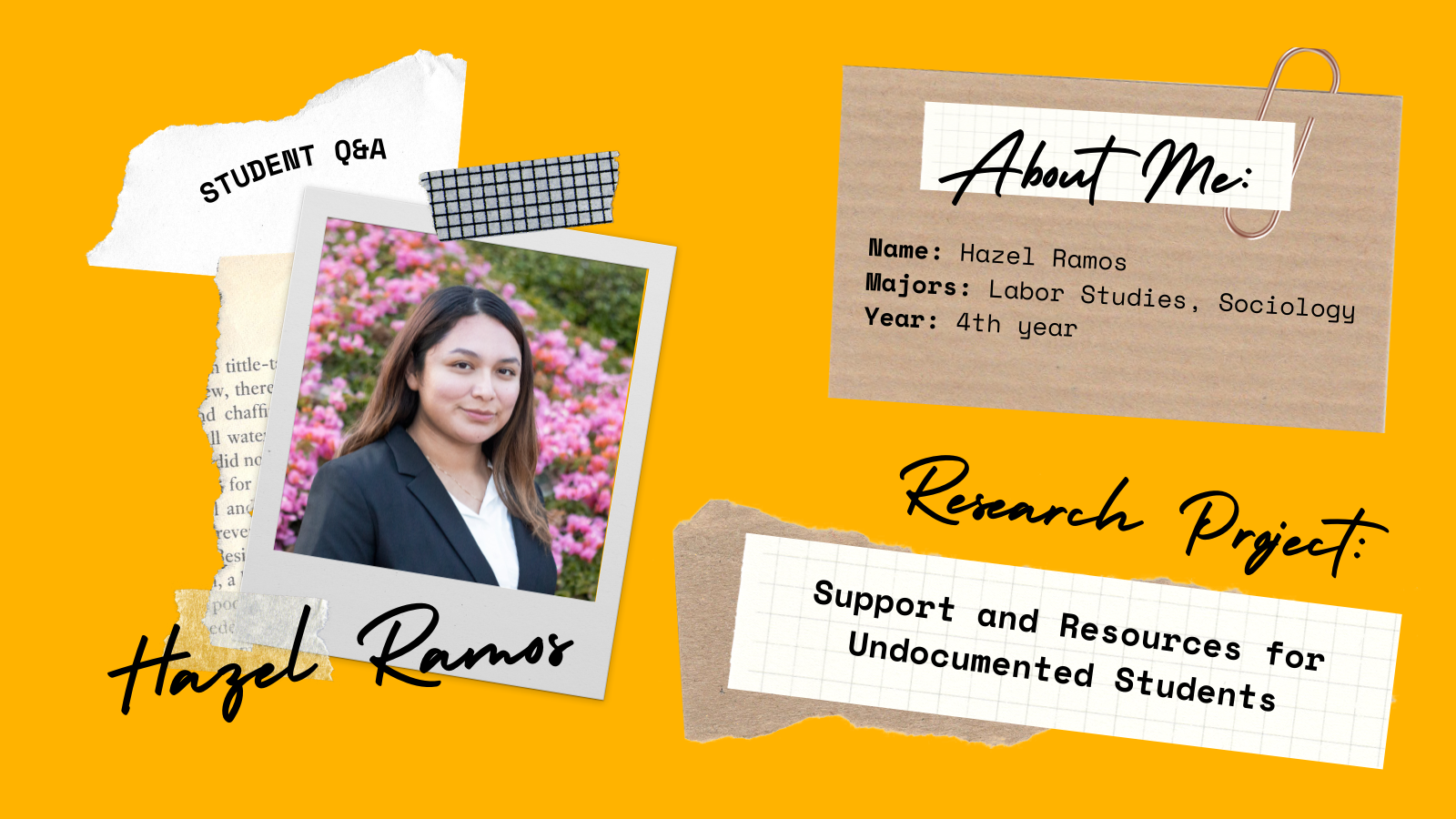Student Researcher Q&A: Hazel Ramos on Rapid Response Networks
Students in the Labor Studies Interdepartmental Program are able to conduct independent research through LBR STD 199 – Directed Research in Labor and Workplace Studies. This contracted course consists of supervised individual research under the guidance of a faculty mentor and requires a culminating paper or project. Labor studies major Hazel Ramos conducted her research on Rapid Response Networks at UCLA with Professor Abel Valenzuela as her faculty mentor. Learn about her research experience below!
1. Can you tell us a little bit about yourself and your research interests?
My name is Hazel Ramos, I’m a rising fourth year student double majoring in Sociology and Labor Studies. I’ve been involved in IDEAS at UCLA since my first year of college. Being involved in this student led organization, I realized there is a lack of support and resources for undocumented students. Once I became more aware of the gap in resources and the institutional challenges in place, I knew I wanted to be involved in this movement to close this gap. However, I did not know where to start. Through IDEAS, I explored the different realms of advocacy and found my way of advocating is through research.
2.What is your independent research project topic?
This research started through the advocacy efforts of IDEAS at UCLA. We saw the need in creating a protocol that protected undocumented students and their families from immigration related emergencies. This research is about Rapid Response Networks, more specifically about how to create one at the institutional level. Although there is a detainment protocol in place, there’s not a protocol in place that prevents detainment/deportation. With Professor Abel Valenzuela along with two other chairs of IDEAS our research is to create a RRN at UCLA that will prevent the detainment and deportation of undocumented students and their families. My independent project focuses on the feasibility of creating a RRN at UCLA while also incorporating student experiences to see how a RRN can retain undocumented student and ease the uncertainties related to deportation or detainment.
3. How was your experience conducting independent research remotely?
Since this was my first time conducting an independent research project, it was challenging. I was participating in two other programs (URFP and UndocuBruins) which had a graduate school component as well, which added an additional challenge in terms of keeping up with the assignments and the research. However, I had great mentors throughout this project, my faculty mentor Abel and the cohort coordinator for UndocuBruins, Josefina have made this project enjoyable despite the challenges.
4. What skills have you learned from your independent research experience?
I’ve developed various skills through independent research. I’ve learned how to write literature reviews, analyze and interpret qualitative data, navigate research databases, annotated bibliographies, and learned to navigate research overall. I’ve learned to use my research as a form of advocacy and a way to create tangible resources for the community.
5. What advice would you give others who are considering pursuing their own independent research project?
Start the process early and pursue a research you are genuinely interested in. There are so many professors at UCLA that can be your mentor. If one of them says no, don’t get discouraged, see it as a way to develop your outreaching and networking skills!
6. What’s the most fulfilling part of working on your project?
Being part of IDEAS at UCLA and seeing the results we achieved as a collective. Although the research is not finished, we are working towards tangible results and that is very exciting.


